On this part of our whirlwind trip we focused on P4P’s farming and other economic development projects.
P4P Farming
Our agriculture programs teach farmers innovative farming methods, like Farming God’s Way (FGW). Twice per year 25 farmers at a time are recruited, trained and provided seeds and fertilizers to plant using the methods they learned during training. Then, P4P staff monitors their farms, providing advice and support during the growing and harvesting season, helping to ensure the farmers have bumper crops to not only feed their families, but sell at the market for additional income.
We were excited to visit a number of farms, including P4P farmer Joel, who has an amazing farm supporting his family as well.
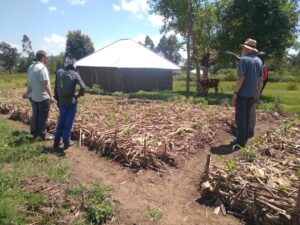
Beginning in 2023 P4P made an important strategic decision to add families enrolled in our Power of Milk (POM) program to the farmer training program. These participants, many of whom are single parents or grandparents, are given special attention and training on their often small plots. The results have been amazing, resulting in much needed available food for their children.
P4P ‘s goal is to add even more POM families – even as many as 85% of the participants – to the program so they can learn sustainable farming that will support their family.
We were delighted to give farming utensils to two of our most successful farmers.
One is a FGW lead farmer, a 65 year old woman named Elsa, who trained with P4P, but now works without P4P support. Elsa has steadily expanded her operation and earns a good living from her farm.
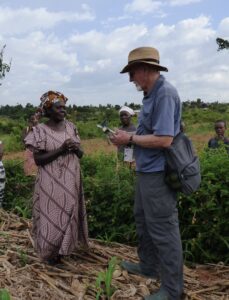
Both Elsa and Joel were thrilled to receive the P4P gift of farm tools.
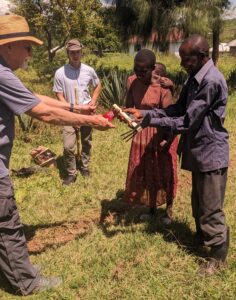
Notably, Joshua says that he could train up to 50 farmers at a time if we had the resources to do so.
P4P Demo Plot
The visit to the P4P Demo Plot was one the absolute brightest spots of our Kenyan journey!
The P4P Demo Plot is a large, fenced plot that P4P Agriculture Coordinator Joshua uses for a variety of purposes including practical demonstrations of how to plant crops using FGW methods and providing plant starters for purchase by local villagers.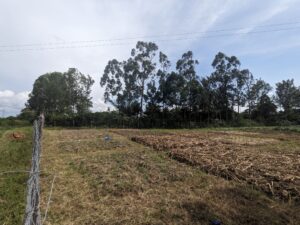
Here we saw a large variety of crops being raised including maize (corn), orange flesh potatoes (known here as sweet potatoes), kale and other greens. We were thrilled to see that the both monkey plant and Eucalyptus tree planted a year ago by P4P volunteers Sandy Ivers and Stacey Mainer are thriving!
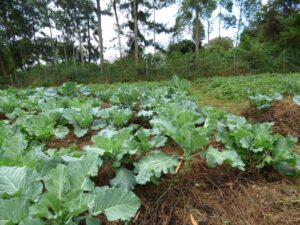
Our group got into the game. Under the watchful eye and instruction of Joshua, Garry planted a Jack Fruit tree, Jeremy planted an indigenous tree and I planted a White Sappote fruit tree.
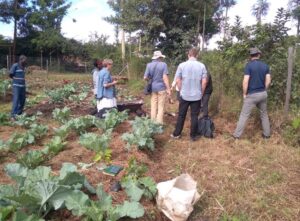
It was clear that Joshua’s knowledge is phenomenal! People come from all over the area – hearing about the plot by word of mouth.
In fact one now enormously successful farmer, Charles Juma, got his start by observing what was happening at the Demo plot and contacting Joshua to assist him in implementing the methods at his farm. While Charles was not a direct beneficiary of P4P’s resources what he learned from Joshua helped him to improve and expand his operations.
As a side note, we visited Charles farm and we were blown away by his impressive enterprise. From tomatoes to poultry to composting to many other fruits and vegetables, Charles farm is now a model for others to follow, and it started with advice from P4P!
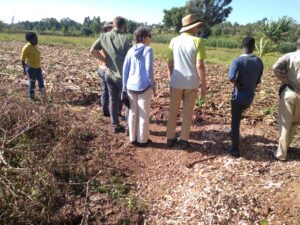
In addition to Charles’ farm, Joshua has a number of other model farms (some of which we visited) that he now sends farmers to – for learning/sharing purposes.
We were really excited by the quality of the P4P staff. Joshua for instance was trained through P4P funding is working on his certification in FGW methods. When Joshua completes his certification, he will be able to train trainers – and hopes that he can attract farmers from all over the county to attend FGW training at the P4P Demo Plot.
More projects, more hope!
In addition to crops, P4P supports other types of farming such as poultry and goats. Our poultry and goat farmers have had some great success stories, and others not so much.
We learned that both have pluses and minuses. Poultry has much higher returns than goats as well as in a shorter time period, but higher risks, mostly from disease. Joshua says that the local breed of goats are not dairy goats – and to get dairy goats would be an extra expense – plus they might not do well in the local farms. We visited a very well set up and running chicken operation that Joshua uses as a model for others considering chickens.
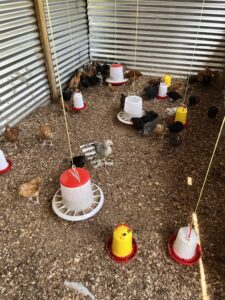
We concluded that families for both FGW and animal projects must be carefully selected to ensure they are ready to take on the projects.
Clearly there is still a need for our Maendeleo Pamoja (entrepreneurship) programs. For instance, the soapmaking enterprises we funded are having continued success. We agreed that P4P should continue to see out and encourage innovative ideas for sustainability projects.
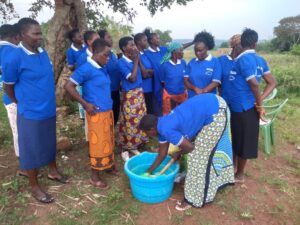
All in all our team was thrilled with the overall success of our Economic Development programs.
Garry expressed what we all felt when he said, “It was incredibly touching to see and feel the genuine gratitude expressed by people touched by P4P programs. We are giving hope and making a difference.”
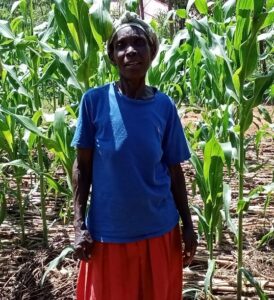
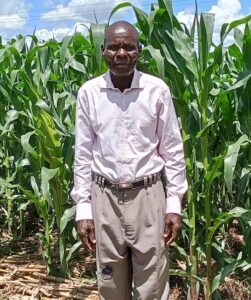










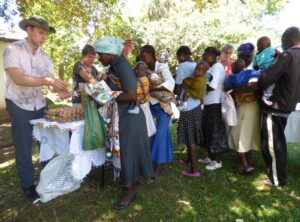
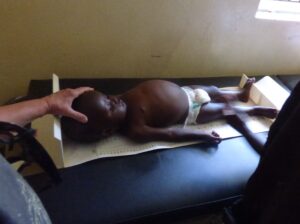
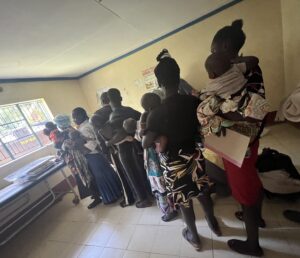
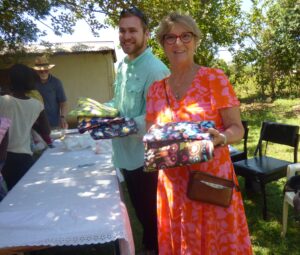
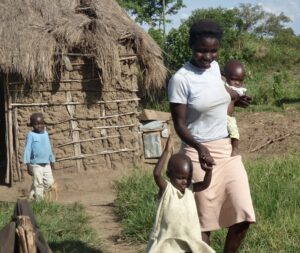
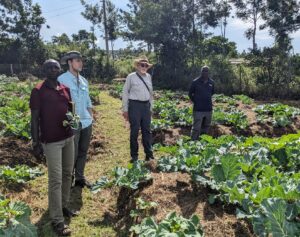
Recent Comments